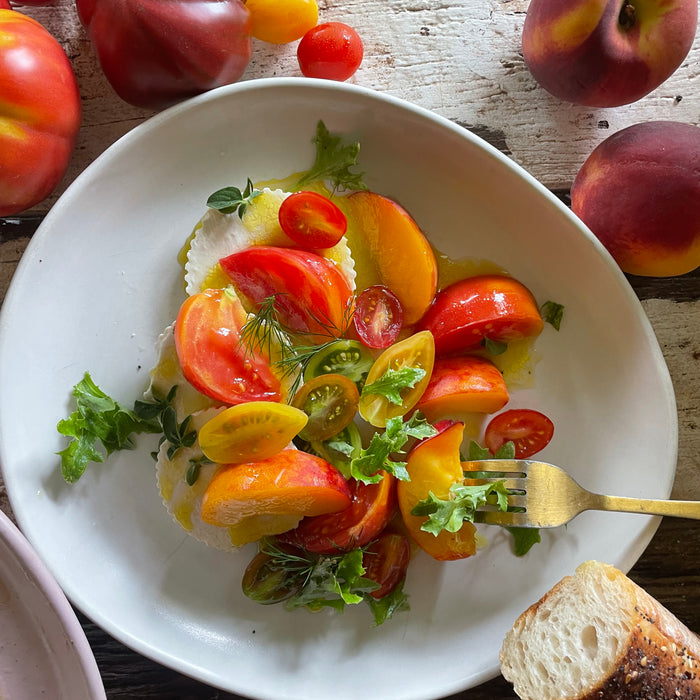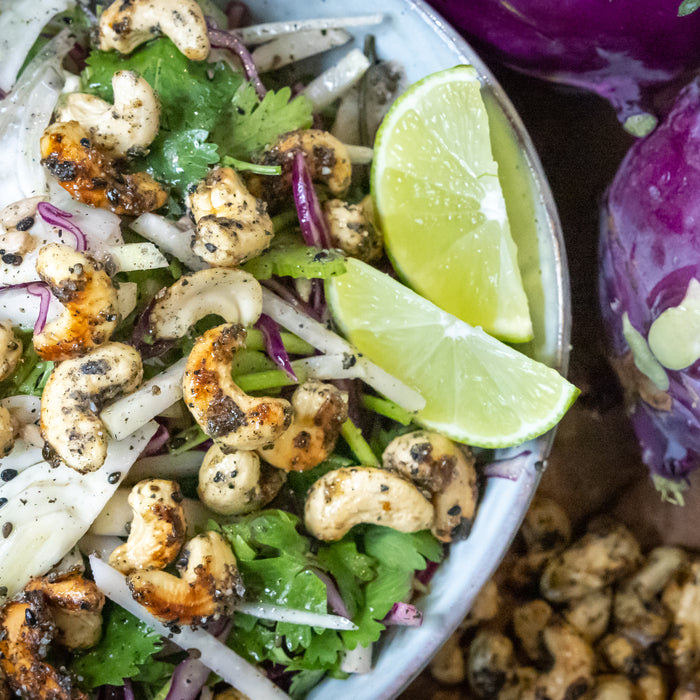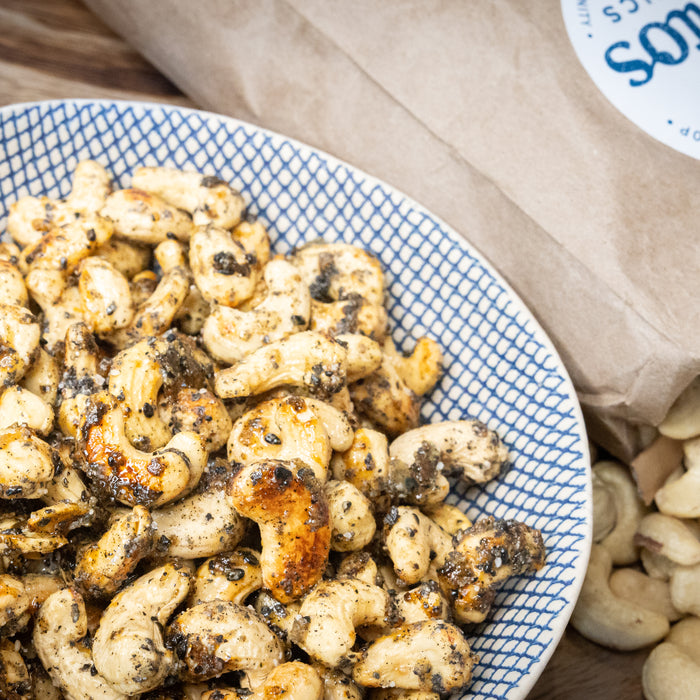The Northern Rivers region has recently faced multiple extreme flooding events in a period of under a month. Thousands of homes have been deemed uninhabitable and many people have lost everything. The stress, anxiety and trauma of the recent events, coupled with exhaustion of rebuilding and recovering, has left many people in our community facing uncertainty and experiencing feelings of stress and anxiety.
We have worked with one of our Naturopaths, Jana to provide you with some helpful tips and suggestions on how to treat anxiety naturally. There are many safe and holistic treatments for relieving anxiety, from mind-body techniques to spirituality, to eating a healthy diet and drinking calming teas. Whilst some of these remedies may start helping straight away, others may take some extra time to decrease anxiety symptoms. Many of these remedies listed below, plus others are available for purchase in our Santos Organics stores. Our Naturopaths are here to support you and are available Mon-Sat in our Byron Bay town and Mullumbimby stores.
Self-Awareness is Key
Some anxiety is normal and it is not always a bad thing. Anxiety can make you aware of danger, help you stay organised and be prepared to face risks. Although, when anxiety becomes a daily struggle and starts influencing your everyday life, it is time to address the issue before it gets worse and turns into a serious mental health disorder. If not checked at the right time, anxiety may greatly impact the overall quality of your life. Take charge, discuss any issues with your health care provider and read on to learn more about safe and holistic treatments for reducing stress and anxiety.
1) Stretch, Exercise & Stay Active
Regular exercise is good for your physical, as well as emotional and mental health. According to a Harvard study, moving your body decreases muscle tension and tightness in the body. As your body starts to relax, you feel better and less anxious. Engaging in regular exercise helps to divert your attention from the very thing you are anxious about. Here are some yoga poses that you can try at home to help you to relax. You may also like to try yoga therapy to aid in anxiety relief.
Relaxation exercises like progressive muscle relaxation and guided meditation are also a great way to relax tension in the body. Try this exercise at home: Lie down in a comfortable position and slowly start contracting and relaxing each muscle group, beginning with the toes and working up to the shoulders, jaw and face.
2) Quit Alcohol, Caffeine & Smoking
Drinking alcohol when your nerves are shot may numb your feelings of anxiety for a short period of time. Although, alcohol is a proven quick fix, not a solution. Once the effect of alcohol is over, anxiety returns with a vengeance.
Smokers often reach for a cigarette during anxious and stressful times. Similar to drinking alcohol, reaching for a cigarette when you are stressed is only a quick fix that may worsen anxiety over time. Nicotine reaches your brain in about ten seconds and creates an immediate sense of relaxation through the release of the chemical dopamine. Over time smoking encourages your brain to switch off its production of dopamine, which in turn prompts you to smoke more. Rather than relying on quick fixes to stress and anxiety - which in many cases make the situation worse, there are safer alternatives which seek to address the root of the problem.
Further research suggests that while caffeine can increase alertness, attention, and cognitive function, overdoing it and consuming too much caffeine can increase anxiety, particularly in people suffering panic and social anxiety disorders.
3) Get Enough Sleep
Insomnia is a common symptom of anxiety and having deeper sleeps may help to reduce symptoms. According to Medical News Today, a new study strengthens and quantifies this causal relation and shows that a sleepless night can raise anxiety by up to 30%.
The following good sleep hygiene habits can be very helpful in decreasing anxiety:
- Limit the use of blue-light devices in the last hour before bed, such as cell phones and computers
- Avoid any caffeinated drinks after 2 or 3pm
- Keep your bed neat and clean
- Follow your body’s circadian rhythm
- Allow for some fresh air to circulate in your room
- Wear comfortable pajamas like organic cotton that are breathable
-
Write a gratitude journal or say your prayers before bed
- Take Magnesium supplement 30 min before sleep or take a magnesium bath.
4) Get Spiritual & Practice Breathing
You may have noticed that when you start to feel anxious, your breathing becomes shallow and fast. This may in turn lead to a fast heart rate, dizziness, lightheadedness, or even a panic attack. Deep breathing exercises that include the deliberate process of taking slow, even, deep breaths can help restore normal breathing patterns and reduce anxiety.
Here are some spiritual ways that can help you to manage anxiety:
- Sing, dance, and celebrate. The very intention to celebrate will pull you away from anxiety and into a more harmonious state
- Pray, have faith and surrender to the higher power and know that there is a supreme power who loves you and accepts you totally. This will bring a total sense of security
- Journal your thoughts to observe negative thought patterns and replace them with positive ones
- Remind yourself of the big picture and the impermanence of everything
- Acupuncture, yoga, meditation and Reiki are also helpful holistic treatments for anxiety.
5) Eat a Well-Balanced Diet & Supplement from Nature
There are vitamins and supplements that may help in treating depression and anxiety. Specific vitamins address biological factors that add to anxiety and depression, such as low Vitamin B6 and iron. Vitamins can also help with serotonin deficiency. However, just taking a few vitamins and supplements isn’t going to make your anxiety or depression go away. Although, as part of a holistic approach to anxiety and depression treatment, they may certainly help your body to find balance.
Here are a few suggestions alongside wholefood and a well-balanced diet. For a custom and tailored treatment plan to best suit you, please visit one of our friendly Naturopaths in our Byron Bay town or Mullumbimby stores.
Vitamin D
Vitamin D is important for various reasons. Besides regulating your mood, Vitamin D is good for the brain and for nerve health. Research shows a link between Vitamin D and depression. Therefore, taking Vitamin D supplements may help with reducing depression. Another way to get Vitamin D is from the sun - try taking a long walk on the beach at sunrise.
Vitamin B Complex
B vitamins include eight different vitamins that manage different body processes, for example, stress levels. If you consume animal-based foods, you are likely to be getting enough Vitamin B in your diet. Although, if you are vegan or vegetarian, you may need to consider taking supplements, especially B12.
Magnesium
Magnesium is needed for almost every bodily system in order to operate optimally. In fact, if you are low on magnesium, you risk anxiety and depression. Eating the following foods can help to raise magnesium levels in the body. Some healthy foods that are rich in magnesium include: black beans, dark chocolate, almonds, cashews, spinach, quinoa and whole wheat.
L-theanine
Green and black tea contains an amino acid called L-theanine. L-theanine is also a mild sedative and anti-anxiety agent. However, you should not consume more than 400mg a day without a doctor’s approval.
GABA
Gamma-aminobutyric (GABA) is crucial for serotonin production. It is an amino acid and transmitter located in your brain. Specifically, it’s known as the “feel-good” neurotransmitter. Because serotonin is the nervous system’s most powerful neurotransmitter, GABA helps with mood regulation and relaxation. Although, many vitamins can help decrease levels of anxiety, GABA is known to directly reduce anxiety symptoms.
Valerian Root
Valerian root has been used medicinally since ancient Greek civilisation. In modern times, it has many different medicinal purposes and uses - it mainly aids in sleep, although it is also helpful in reducing anxiety. Valerian root works by turning acids within the herb to calming, ‘feel-good’ neurotransmitters. As a result, it relaxes the mind and body and also regulates stress. Valerian root extract is available in capsule, liquid, or tea form.
Chamomile
People have used chamomile for thousands of years. This daisy-like flower has well-known and recognised calming effects. Additionally, you can find chamomile widely used and available in essential oils, supplements, and teas.
Lavender
Lavender is well-known and loved for its relaxing effects. In fact, some people believe that just smelling the plant helps to ease anxiety. Lavender cream can be used topically to ease stress and anxiety in pregnant women. Aromatherapy is also a helpful alternative therapy; try using a few drops of the essential oil on your pillow at night to aid sleep or in a home diffuser during the day for relaxation benefits.
6) Connect with Nature
Another holistic approach to anxiety and depression is getting outside and into nature: try taking a walk through a tree-lined park or hike through nature barefoot, intimately connecting with the energising ground, natural elements - mother earth. Studies conducted on spending time in nature outdoors have shown to reduce symptoms of anxiety and depression.
Specials thanks to Jana @thesecret_kitchen for writing this article.






